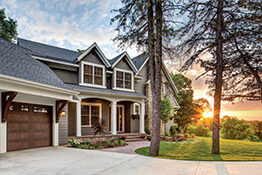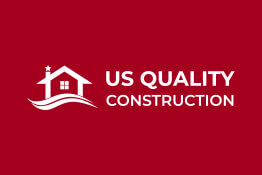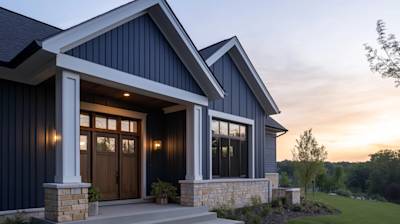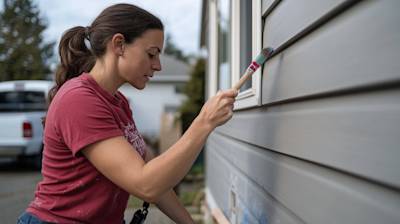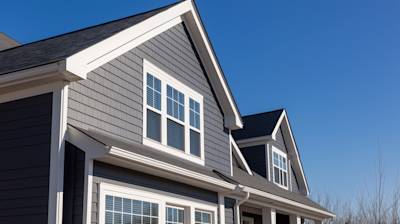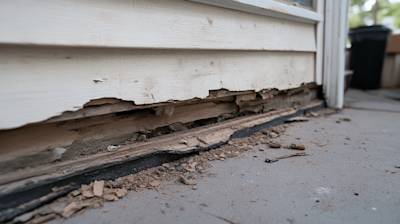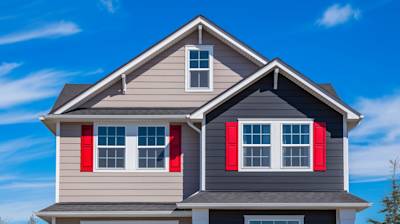Driving through a neighborhood adorned with beautifully designed homes, your attention might be drawn to one key detail that pulls the aesthetics together: siding. Be it be vinyl, wooden or fiber cement siding, an integral part of its installation is using the right kind of screws. This article puts siding screws under the spotlight. We delve into the details of what makes siding screws essential, their types, their installation, and other related topics.
The Importance of Siding Screws
Siding screws are made to secure siding, the protective material installed on the exterior of a house, to the house itself. What defines a good siding screw is its ability to withstand harsh weather conditions without affecting the quality of the siding. The importance of using the right kind of screw can't be overstated.
Durability
Siding screws need to withstand heavy weather, and constant moisture exposure. The durability of your siding screws can, in essence, dictate the resilience of your siding.
Aesthetic Value
Siding screws, especially those visible, should blend seamlessly with your siding. A mismatch can detract from your home's visual appeal, lowering its overall value.
Types of Siding Screws
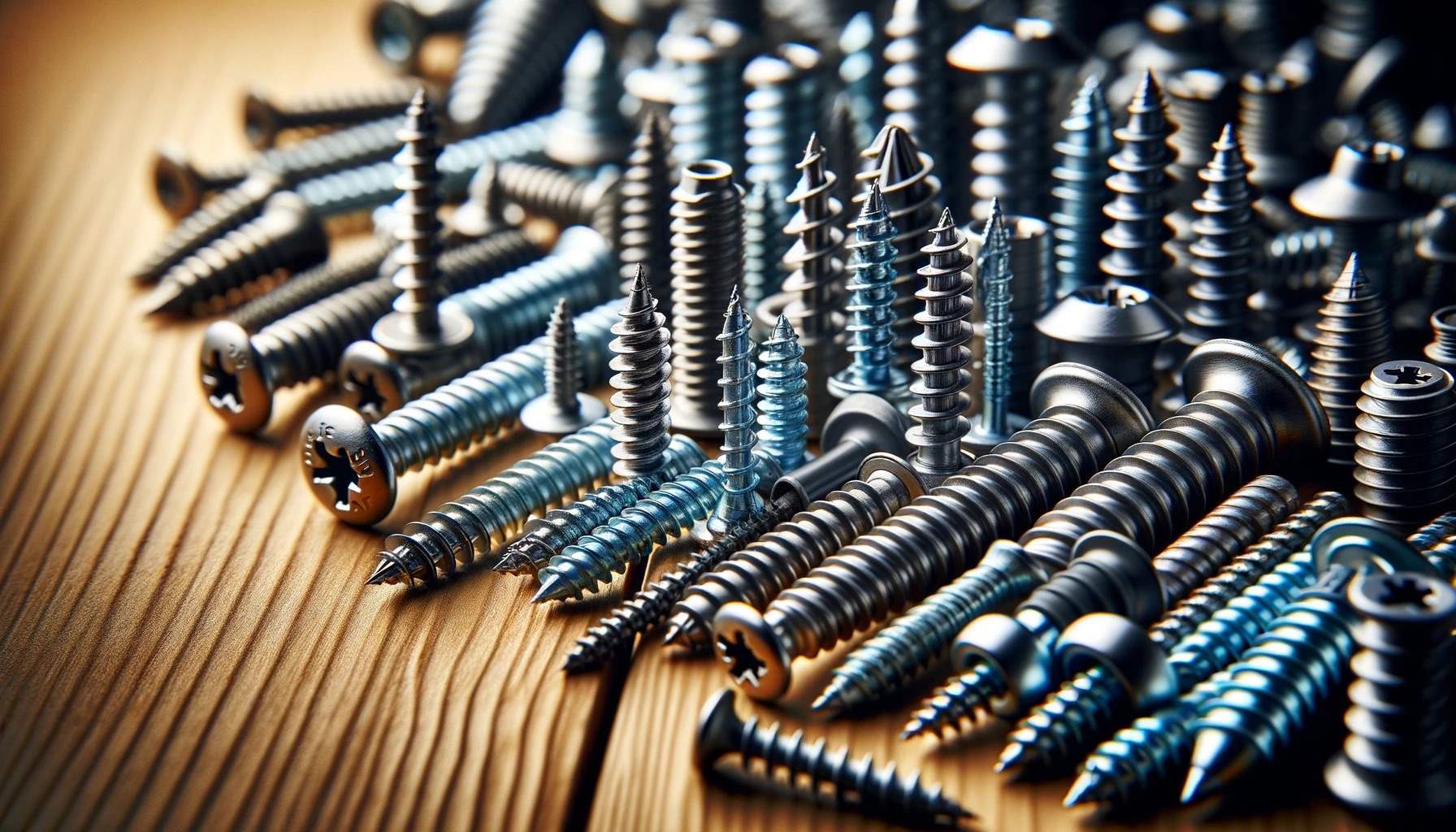
When it comes to siding screws, you have numerous options depending on the material you're working with. Here are some of the main types:
- Stainless Steel Screws: Often used with vinyl siding, these are resistant to rusting and corrosion, making them an optimal choice for areas with a salty atmosphere or high humidity.
- Galvanized Screws: These are coated with a layer of zinc and are ideal for wood and fiber cement siding. The zinc coating provides ample protection against rust.
- Ceramic Coated Screws: They are energy-efficient and suitable for spaces prone to extreme weather conditions. More often than not, they are chosen for their high heat resistance.
Picking the Right Type of Screws for Your Siding
Choosing the right kind of siding screw largely depends on the material of your siding and your location's climate conditions. A quick way to get a better idea would be consulting with a professional contractor and letting them evaluate the situation.
Installation of Siding Screws
Installation of siding screws can depend on the type of siding you're dealing with. Each type requires a unique approach, and knowing how to handle each can guarantee the longevity and stability of your siding.
Installation with Vinyl Siding
For vinyl siding, using stainless steel siding screws would be your best bet. Use a power drill to penetrate the vinyl and then drive the screw into it without causing any cracks or fractures.
Installation with Wood or Fiber Cement Siding
With fiber cement or wood siding, using galvanized screws would be appropriate. Predrill the holes to prevent splitting and then drive in the screws securely.
Preserving the Quality of Siding
Aside from using high-quality siding screws, regular inspections and maintenance can help preserve the quality of your siding. Look out for indications of loosening screws or damage caused by harsh weather conditions and address them promptly.
By understanding the integral role of siding screws and correctly implementing them in your home improvement projects, you can increase your home's aesthetic appeal, boost its value and ensure its long-lasting durability. Your home deserves the best, hence picking the right siding screws can make all the difference.
Frequently Asked Questions About Siding Screws
Why should I use siding screws instead of nails?
While nails are a traditional choice for installing siding, screws bring certain advantages. Siding screws provide a more secure and long-lasting hold than nails. They also allow for easier adjustment if the siding panels expand or contract due to temperature changes or other outdoor factors.
What's the recommended screw size for siding installation?
The recommended screw size for installing siding can vary based on the type and thickness of the siding material. However, a general rule of thumb is to use siding screws that are able to penetrate at least 1" into the stud or furring strip. This typically amounts to screws ranging from 1.5" to 2" in length.
How many siding screws are typically needed per panel?
As a standard guideline, for every square foot of siding, you'll need about 5-6 siding screws. However, this can vary depending on factors like panel size, stud spacing, and wind exposure. Always refer to the siding manufacturer's instructions for specific recommendations.
Are there color-matching screws for my siding?
Yes, many manufacturers of siding screws offer a range of colors designed to match most common siding colors. These color-matching siding screws can blend in seamlessly with your siding, ensuring a clean and cohesive appearance.
Can I replace siding nails with screws?
Yes, it is possible to replace siding nails with screws. In fact, using siding screws might provide a tighter hold and reduce the risk of siding blow-offs during heavy winds. This job requires some care though to avoid damaging the siding. Also, ensure loosening of nails is not due to structural issues, in which case, professional assessment may be warranted.
Can siding screws be used for other purposes?
Yes, while designed for securing siding, these screws can also be used for other woodworking or DIY projects that require a strong, stable connection. However, please ensure the specific requirements of screws like length and strength match with the need.
Pros and Cons of Siding Screws
PROS of Siding Screws
Durability
Siding screws are renowned for their durability. This is due to the following factors:
- Weather Resistance: Siding screws often come with a coating or are created from metals that can resist harsh weather conditions. They can endure high humidity, heavy rains, snow, and sharp temperature fluctuations without rusting or weakening.
- Long Lifespan: Unlike other types of fasteners, siding screws have a higher lifespan. Their durability features aid in reducing the frequent need for replacement.
Installation Ease
The installation process of siding screws is another major advantage. Factors contributing to this ease include:
- Self-drilling Function: Many siding screws have a self-drilling function that reduces the need for pre-drilling holes. This makes the installation process easier and faster.
- Thread design: The design of the thread in siding screws aids in reducing the driving torque, which makes the manual installation simpler.
CONS of Siding Screws
Cost
One of the major drawbacks of siding screws is their cost. These screws can be more expensive than other fasteners due to:
- Material: Given that siding screws are often made from premium materials such as stainless steel or are coated with protective substances, they tend to cost more than standard screws.
- Special Features: The additional features like self-drilling points and rust-resistant coatings also contribute to the high cost of siding screws.
Limited Color Options
While siding screws provide a neat finish, they commonly come in limited color options. This can be a disadvantage due to:
- Lack of Aesthetic Blend: The limited color range may not completely match the color of the siding panels, potentially creating a less than perfect aesthetic finish.
- Color Fading: Over time, exposure to harsh environmental elements may cause the siding screws' color to fade, leading to a mismatch with the color of the siding.
Potential for Stripping
Despite their durability, siding screws are still susceptible to stripping, which occurs when the screw's head is worn down to a point where a screwdriver can no longer grip it. This can happen due to:
- Frequent Re-installations: If the siding screws are frequently removed and reapplied, it can lead to the screw heads becoming stripped and unusable.
- Cross-threading: Incorrect driving of the screws may result in cross-threading, which weakens the grip of the screws and makes them prone to stripping.
Summary
The usefulness of siding screws cannot be overstated in the construction industry, specifically in installing sidings on a building. They are pivotal to secure the siding materials firmly to the structure, thereby ensuring longevity and durability. These high-performance screws, specifically designed for this application, are resistant to both rust and corrosion, meaning they can withstand harsh environmental conditions and last for years.
Siding screws come in a variety of sizes and types, catering to a range of materials, from wood to vinyl, metal to fiber cement. What sets these screws apart is their design, which allows them to penetrate siding materials effortlessly, securely attaching them to the substrate without damaging the siding. Moreover, they are designed to blend seamlessly with the color and finish of the siding, giving the finished job a clean and polished look.
Investing in high-quality siding screws is a smart decision in the long run. Not only do they provide a strong bond for siding materials, but they also reduce the maintenance needs and extend the lifespan of the siding. If you want your siding to stay put for decades, these screws are your best bet. They are not just fasteners, but a critical component creating lasting value for your home or building.
About US Quality Construction of Columbus
Welcome to US Quality Construction of Columbus, your reliable partner for all your construction needs. Nestled in the heart of Columbus, OH, we pride ourselves on our unwavering commitment to deliver top-notch services that exceed your expectations. With years of experience under our belt, our team of professionals bring their unique expertise to each project, promising the perfect blend of quality, precision, and passion. Whether it's revamping a space or building from the ground up, we tackle each task with equal gusto. Discover more about how our craftsmanship can make a difference by visiting our website.
Tags: siding screws, construction materials, screws selection,
